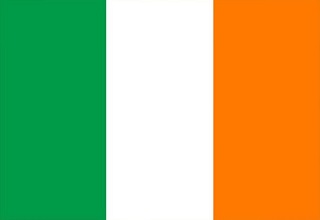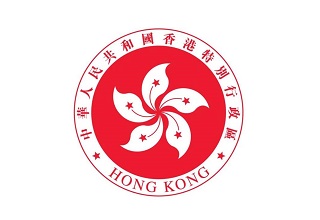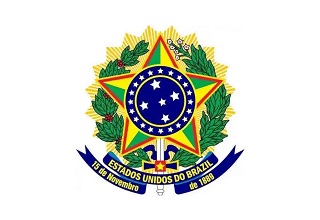Regarding the Inspection and Quarantine Requirements for Bird's Nest from Cambodia to China
In accordance with Chinese laws and regulations, as well as the regulations of the Chinese Customs and the Ministry of Agriculture, Forestry and Fisheries of Cambodia on the inspection, quarantine and sanitation requirements for Cambodia's export of raw bird's nests and edible bird's nests to China, starting from today, Cambodian raw bird's nests and edible bird's nests that meet the relevant requirements are allowed to be imported.
I. Inspection and Quarantine Basis
(1) Laws and Regulations.
"Food Safety Law of the People's Republic of China" and its Implementing Regulations, "Law of the People's Republic of China on Entry and Exit Animal and Plant Quarantine" and its Implementing Regulations, "Law of the People's Republic of China on Import and Export Commodity Inspection" and its Implementing Regulations, "Special Provisions of the State Council on Strengthening the Supervision and Management of Food and Other Product Safety", "Measures for the Administration of Import and Export Food Safety of the People's Republic of China", "Regulations on the Registration and Administration of Overseas Production Enterprises of Imported Food of the People's Republic of China", etc.
(2) Bilateral Protocol.
"Protocol on Inspection, Quarantine and Sanitation Requirements for Cambodia's Export of Raw Bird's Nests and Edible Bird's Nests to China" between the General Administration of Customs of the People's Republic of China and the Ministry of Agriculture, Forestry and Fisheries of the Kingdom of Cambodia.
II. Scope of products allowed for import
The "raw bird's nest" allowed for import refers to: products formed by the saliva of swiftlets and similar swallows, which have been effectively treated to remove feces, soil and general impurities, are free of mold and mildew, and have not added any substances. They are the raw materials for producing edible bird's nests.
The "edible bird's nest" allowed for import refers to: bird's nests formed by the saliva of swiftlets and similar swallows, which have been effectively removed of dirt and feathers and are suitable for human consumption.
III. Requirements for production enterprises
The production and processing of raw bird's nests and edible bird's nests exported to China must comply with the relevant inspection and quarantine and food safety and sanitation regulations of China and Cambodia. Raw bird's nests and edible bird's nests exported to China must be effectively heated to kill avian influenza viruses and Newcastle disease viruses at a "central temperature of not less than 70°C for at least 3.6 seconds".
The bird's nest (bird's nest cave) from which raw bird's nests and edible bird's nests exported to China come must be registered with the competent department of the Ministry of Agriculture, Forestry and Fisheries of Cambodia and reported to the Chinese Customs. Primary processing enterprises of raw bird's nests exported to China and processing enterprises of edible bird's nests must register with the Chinese Customs in accordance with the "Regulations on Registration and Administration of Overseas Manufacturers of Imported Foods of the People's Republic of China". Products produced from the date of registration can be exported to China. Unregistered manufacturers are not allowed to export to the Chinese Customs. Primary processing enterprises of raw bird's nests exported to China should have a certain production scale and establish effective epidemic prevention and safety and sanitation systems; the layout should be scientific and reasonable, without cross contamination; and they should have the ability to remove feces, soil and general impurities from raw bird's nests, and disinfect the outer packaging. Primary processing enterprises of raw bird's nests exported to China and processing enterprises of edible bird's nests should have the ability to implement effective sanitation treatment of raw bird's nests and edible bird's nests.
IV. Inspection and quarantine requirements
(1) The Ministry of Agriculture, Forestry and Fisheries of Cambodia shall establish a bird's nest house (bird's nest cave) epidemic prevention and sanitation management system; bird's nest harvesting and transportation sanitation control operation procedures; annual animal disease monitoring plan and toxic and hazardous substances monitoring plan related to quarantine and sanitation and food safety of exported raw bird's nests and edible bird's nests, among which the annual disease monitoring plan shall include a monitoring plan for avian influenza and Newcastle disease of a reasonable number of swiftlets in bird's nests (bird's nest caves) that have been reported to the Chinese Customs.
(2) The Ministry of Agriculture, Forestry and Fisheries of Cambodia shall ensure that primary processing enterprises of raw bird's nests exported to China and edible bird's nest processing enterprises establish a bird's nest traceability system from bird's nests (bird's nest caves) to export, which can be traced and recalled when problems occur, and traced back to the registered bird's nest house (bird's nest cave).
(3) Raw bird's nests and edible bird's nests are produced and processed under the operation of an effective quality system, and are effectively heat-processed, and are not contaminated by any pathogens that may harm the health of poultry and humans, and comply with the laws and regulations of the Ministry of Agriculture, Forestry and Fisheries of Cambodia and the Chinese Customs. Implement effective sanitation treatment. The outer packaging and transportation containers are disinfected.
V. Product Certificate Requirements
Each batch of raw bird's nest and edible bird's nest exported to China shall be accompanied by an original veterinary health certificate. The veterinary health certificate shall be written in Chinese and English, and its format and content shall be approved by both parties in advance.
The veterinary health certificate issued by the Ministry of Agriculture, Forestry and Fisheries of Cambodia shall indicate:
(1) Registration number of the bird's nest house (bird's nest cave), registration number of the primary processing enterprise (processing enterprise), and source of raw materials of the product.
(2) The area where the bird's nest (bird's nest cave) is located has carried out monitoring of highly pathogenic avian influenza and Newcastle disease in accordance with the relevant rules of the World Organization for Animal Health (WOAH), and no abnormalities have been found.
(3) Necessary precautions have been taken to prevent the product from contacting all sources of avian influenza and Newcastle disease viruses.
(4) The product has undergone effective heat processing, and the processing technology requirements are not less than "heating at a center temperature of not less than 70°C for at least 3.6 seconds".
(5) The product complies with Chinese laws, regulations and relevant standards and requirements.
(6) Suitable for processed food or human consumption.
VI. Product packaging and labeling requirements
Raw bird's nests and edible bird's nests exported to China must be packaged with new materials that meet international health standards, and the inner and outer packaging should be sealed.
The outer packaging of raw bird's nests exported to China must clearly indicate the product name, weight, bird's nest (bird's nest cave) registration number, name, address and registration number of the primary processing enterprise, product storage conditions and production date, shelf life in Chinese and English, and indicate the destination as the People's Republic of China; mark "only for deep processing in the processing site, not for the retail market" and other relevant information.
The inner and outer packaging of edible bird's nests exported to China must indicate the product name, weight, bird's nest (bird's nest cave) registration number, name, address and registration number of the processing enterprise, product storage conditions and production date and other relevant information in Chinese and English. The labeling of relevant product information must comply with Chinese laws, regulations and relevant standards and requirements.
GACC
May 12, 2025




